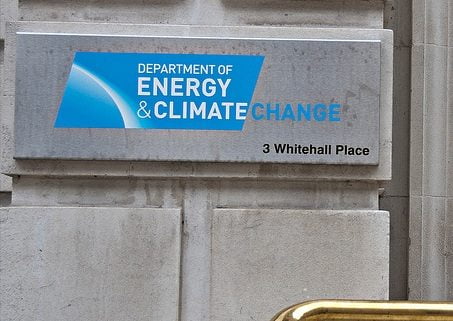

Energy
Baker Tilly: Government consultation could cause lasting damage to the UK renewables industry
The Government Feed-in Tariff (FiT) consultation proposes a set of measures to: “control costs under the FiT, including revised tariffs based on updated technology cost data, a more stringent degression mechanism and deployment caps leading to the phased closure of the scheme in 2018-19”. The consultation closes at 11.45pm on Friday 23 October.
Commenting ahead of the closure of the Government’s consultation on a review of the Feed-in Tariff (FiT) scheme for renewable energy, Mark Stewart, Baker Tilly’s head of infrastructure and renewable energy in Scotland said: ‘This consultation has all been about the Department for Energy and Climate Change trying to manage its costs and the Government’s response will have very serious implications for the whole renewables sector.
‘In order to remain within the proposed overall budget cap of £75-100m for the FiT scheme (to 2018/19), developers and investors will have to accept the internal rate of return (IRR) hurdle rates assumed for each technology type underpinning the proposed FiT rates going forward. For solar investors that means four per cent, for onshore wind it is five per cent and for hydro it is nine per cent. If the cost of the scheme cannot be managed by these deployment caps, DECC proposes to close the scheme for new applicants as soon as legislatively possible, which is expected to be January 2016.
‘Many of our clients have strongly argued that the proposed hurdle rates for onshore wind and solar projects in particular are well below that which would attract investment in the FiT scheme going forward.
‘Sadly for the renewables sector, this consultation is but one of a number of recent UK Government announcements which have rocked the industry. This started with the closure of the Renewables Obligation (RO) for large scale solar projects of 5MW or more in April 2015, followed by the consultation on the intention to close the RO for solar projects of less than 5MW from 1 April 2016 and the intention to close the RO for onshore wind from 1 April 2016 – although this appears to have been defeated in the House of Lords.
“We’ve also seen a delay to the next round of contract for difference (CfD) allocations, the removal of FiT pre-accreditation and the removal of renewable energy generation from the climate change levy exemption. These have all had a detrimental effect on investors, funders, the community and supply chains across the renewables industry. Taken together, they are undermining commitments to tackling climate change and putting thousands of jobs and billions of pounds worth of investment at risk.
‘According to Scottish Renewables, the voice of the industry in Scotland, the impact of these measures could be in the region of £3bn of lost investment and over 5,000 jobs lost in Scotland alone. A report to be issued today by Community Energy England states that capital investment of £127m is now not likely to happen as a result of changes to the FiT scheme, 87% of which are solar projects.
‘The debate on “cost minimisation to the end consumer”, one of Amber Rudd’s key manifesto pledges, will certainly intensify in the coming weeks, particularly as the UK has signed an agreement with the Chinese Government to deliver the £18bn Hinkley Point C nuclear energy plant which is a 3GW power station. It has been argued that the same level of investment would deliver 20GW if invested into offshore wind technology.’
Lindsey Cooper, a partner in Baker Tilly’s restructuring and advisory renewable energy team said: ‘The disproportionate impact on the solar industry is being felt with a number of high profile administrations in recent weeks including the Mark Group and Climate Energy citing a lack of consumer demand resulting from UK Government policy changes. In addition two US groups have recently announced that they will be pulling out of the UK solar market.
‘Companies operating in the sector and their supply chain are facing increased scrutiny from their investors and bankers as they seek to gain comfort around ongoing viability and in some instances projects may be shelved or mothballed. This is a tough time for businesses in this sector and many will need to consider restructuring, merging or even exiting the market.’






























